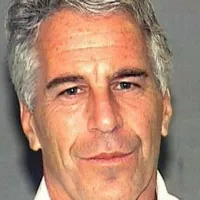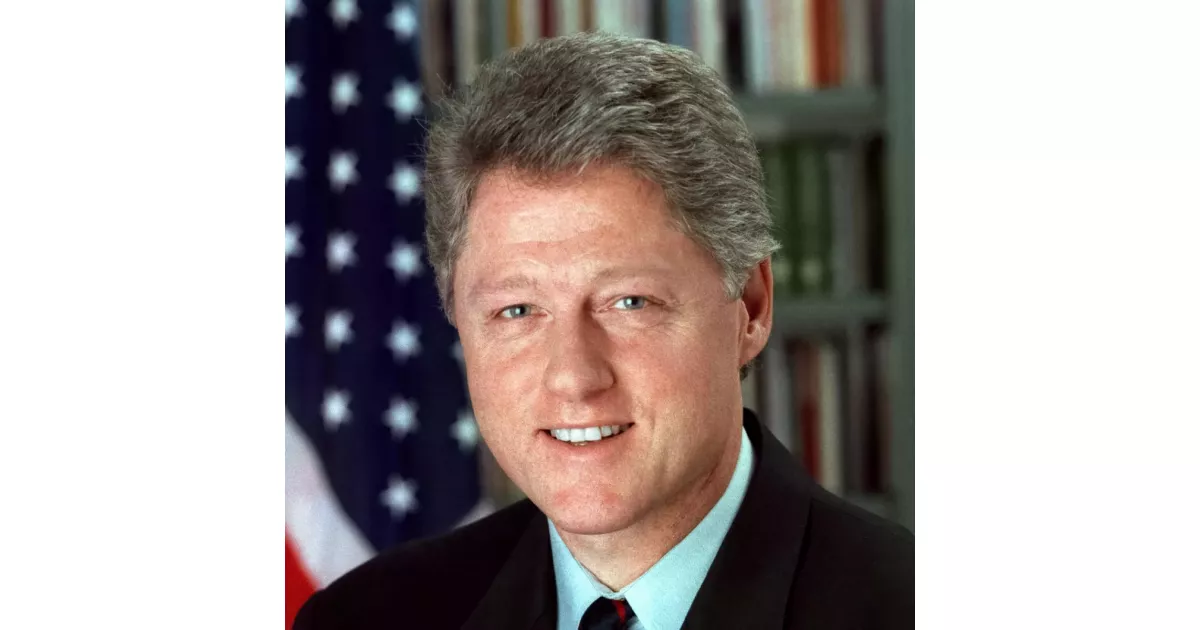How education and upbringing influenced the life of Bill Clinton. A timeline of key moments.
Bill Clinton, the 42nd U.S. President (1993-2001), served as Arkansas's Attorney General (1977-1979) and Governor (1979-1981, 1983-1992). A Democrat, his "Third Way" centrism, dubbed Clintonism, shaped his presidency. Key achievements include economic prosperity, NAFTA, and welfare reform. He faced impeachment proceedings related to his affair with Monica Lewinsky, but was acquitted. His presidency is viewed as a period of relative peace and economic growth, though marked by political polarization and scandal.
August 19, 1946: Bill Clinton's Birth
On August 19, 1946, William Jefferson Clinton, was born in Hope, Arkansas.
1950: Family Moved to Hot Springs
In 1950, Bill Clinton's family moved to Hot Springs, Arkansas, after his mother remarried Roger Clinton Sr.
1961: Member of the Order of DeMolay
In 1961, Bill Clinton became a member of the Hot Springs Chapter of the Order of DeMolay.
1963: Influential Moments
In 1963, Bill Clinton had two influential moments: meeting President John F. Kennedy and watching Martin Luther King Jr.'s "I Have a Dream" speech, which led to his decision to become a public figure.
1964: First executions since 1964
During Bill Clinton's final term as governor, Arkansas performed its first executions since 1964.
1964: Elected Class President
In 1964, Bill Clinton won elections for class president and became an intern for Senator J. William Fulbright.
1965: Elected Class President
In 1965, Bill Clinton won elections for class president and continued working for Senator J. William Fulbright.
1967: Intern in Fulbright's Office
In 1967, Bill Clinton was a clerk in the office of Arkansas senator J. William Fulbright.
1968: Graduation from Georgetown University
In 1968, Bill Clinton graduated from Georgetown University.
1968: Rhodes Scholarship
In 1968, after graduating from Georgetown, Bill Clinton won a Rhodes Scholarship to University College, Oxford.
1971: Death of Frank Aller
In 1971, Frank Aller's suicide had an influential impact on Bill Clinton.
1972: Campaign Work in Texas
In 1972, Bill Clinton moved to Texas with Hillary Rodham to lead George McGovern's campaign efforts there, working with future Dallas mayor Ron Kirk and future Texas governor Ann Richards.
1972: Worked on McGovern Campaign
In 1972, Bill Clinton postponed his summer plans to be a coordinator for the George McGovern campaign for the 1972 United States presidential election.
1973: Graduation from Yale Law School
In 1973, Bill Clinton earned a Juris Doctor (J.D.) degree from Yale Law School.
1976: Death penalty reinstated
The death penalty had been reinstated in Arkansas in 1976, after which Bill Clinton oversaw the first four executions carried out by the state.
1980: "Slick Willie" nickname
In 1980, Pine Bluff Commercial journalist Paul Greenberg first applied the nickname "Slick Willie" to Bill Clinton.
September 1983: Education reforms passed
In September 1983, after Bill Clinton called a special legislative session, education reforms passed in Arkansas, following the work of the Arkansas Education Standards Committee.
1984: Reagan's landslide victory
In 1984, President Ronald Reagan had a landslide victory which led the New Democrats to adopt a more centrist political stance in order to succeed at the national level.
March 26, 1992: "I feel your pain"
On March 26, 1992, during a Democratic fund raiser, Robert Rafsky confronted Bill Clinton about AIDS, to which Clinton replied, "I feel your pain". This televised exchange led to AIDS becoming an issue in the 1992 presidential election.
1992: Unique characteristics of the 1992 election
According to Seymour Martin Lipset, the 1992 election had voters who felt that economic conditions were worse than they actually were, harmed Bush, there was the presence of a strong third-party candidate, liberals launched a backlash against 12 years of a conservative White House. The chief factor was Clinton's uniting his party, and winning over a number of heterogeneous groups.
1992: "Bubba" nickname
Starting from the 1992 presidential election, Bill Clinton's folksy manner led him to be nicknamed Bubba.
1993: Membership in Foundry United Methodist Church
In 1993, when he became president, Bill Clinton became a member of Foundry United Methodist Church in Washington, D.C. with his wife, a Methodist.
November 1996: Assassination attempt in the Philippines
In November 1996, President Clinton narrowly escaped a possible assassination attempt in the Philippines, involving a bridge bomb planted by al-Qaeda and masterminded by Osama bin Laden. The attempt remained top secret during Clinton's presidency.
October 1997: Clinton Announces He Was Getting Hearing Aids
In October 1997, Bill Clinton announced that he was getting hearing aids due to hearing loss attributed to his age and his time spent as a musician in his youth.
January 1, 2000: Clintons Income Tax Returns
From January 1, 2000, to December 31, 2007, the Clintons made $109 million, including almost $92 million from his speaking and book-writing.
2000: "The Big Dog" nickname
Since 2000, Bill Clinton has frequently been referred to as "The Big Dog" or "Big Dog".
January 2001: Clintons' Earnings
From January 2001, to December 2015, Forbes reported Bill and Hillary Clinton made about $240 million (mostly from paid speeches, business consulting and book-writing).
2001: Clinton's Post-Presidency Income
Since leaving office in 2001, Bill Clinton has given dozens of paid speeches each year, mostly to corporations and philanthropic groups in North America and Europe, often earning $100,000 to $300,000 per speech.
April 2007: Clinton Speaks at Yeltsin's Funeral
In April 2007, Bill Clinton spoke alongside George H. W. Bush at the funeral of Boris Yeltsin.
December 31, 2007: Clintons Income Tax Returns
By December 31, 2007, the Clintons' income tax returns show they made $109 million in the eight years from January 1, 2000, including almost $92 million from his speaking and book-writing.
2008: Clintons' Income Tax Returns
In 2008, The New York Times reported that the Clintons' income tax returns show they made $109 million in the eight years from January 1, 2000, to December 31, 2007, including almost $92 million from his speaking and book-writing.
2012: "Explainer-in-Chief" nickname
During the 2012 presidential election, Bill Clinton earned the nickname "Explainer-in-Chief" for his prominent role in campaigning for Obama and his widely publicized speech at the 2012 Democratic National Convention.
2012: Clintons' Income Reported
In 2012, the Clintons made between $16 and $17 million, mostly from speaking fees earned by the former president.
June 2014: Bill Clinton's Speaking Income
In June 2014, ABC News and The Washington Post reported that Bill Clinton has made more than $100 million giving paid speeches since leaving public office.
July 2014: Clintons' Net Worth
In July 2014, The Wall Street Journal reported that at the end of 2012, the Clintons were worth between $5 million and $25.5 million, and that in 2012 the Clintons made between $16 and $17 million, mostly from speaking fees earned by the former president.
May 2015: Clintons' Speaking Fees
In May 2015, The Hill reported that Bill and Hillary Clinton have made more than $25 million in speaking fees since the start of 2014, and that Hillary Clinton also made $5 million or more from her book, "Hard Choices", during the same time period.
December 2015: Clintons' Earnings
By December 2015, Forbes reported Bill and Hillary Clinton made about $240 million in the 15 years from January 2001, (mostly from paid speeches, business consulting and book-writing). Also in 2016, CNN reported the Clintons combined to receive more than $153 million in paid speeches from 2001 until spring 2015.
2016: Clintons' Earnings Reported
In 2016, Forbes reported that Bill and Hillary Clinton made about $240 million in the 15 years from January 2001 to December 2015. CNN also reported that the Clintons combined to receive more than $153 million in paid speeches from 2001 until spring 2015.
November 2017: Donna Brazile Urged Clinton to Campaign
In November 2017, former DNC interim chair Donna Brazile urged Bill Clinton to campaign during the 2018 midterm elections, despite recent criticism of the Lewinsky scandal.
Mentioned in this timeline

Barack Obama the th U S President - was the...

Martin Luther King Jr was a pivotal leader in the...

Hillary Diane Rodham Clinton is a prominent American politician lawyer...

John F Kennedy JFK was the th U S President...

George W Bush the rd U S President - is...

Jeffrey Epstein was an American financier and convicted sex offender...
Trending

54 minutes ago Storm Causes Power Outages Across Central Coast and SLO County, Bringing Down Trees

2 hours ago Iva Jovic triumphs over Rakhimova in Dubai, reveals Pegula observation.

2 hours ago Andreeva vs. Cristian: WTA Dubai 2026 Prediction, Odds, and Match Preview.

2 hours ago Mirra Andreeva embraces attention, aims Dubai title defense, draws inspiration from LeBron James.

3 hours ago Severe Thunderstorm Warning Issued for Central California; Funnel Clouds Possible, Gusty Showers Expected

3 hours ago Iva Jovic Observed Jessica Pegula; Jovic Wins in Dubai First Round.
Popular

Jesse Jackson is an American civil rights activist politician and...
Randall Adam Fine is an American politician a Republican who...

Pam Bondi is an American attorney lobbyist and politician currently...

Barack Obama the th U S President - was the...

Kid Rock born Robert James Ritchie is an American musician...

XXXTentacion born Jahseh Dwayne Ricardo Onfroy was a controversial yet...

